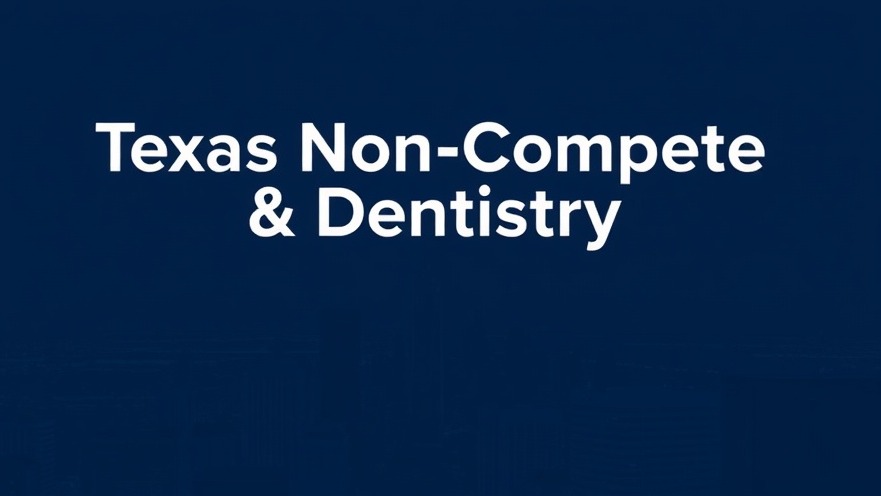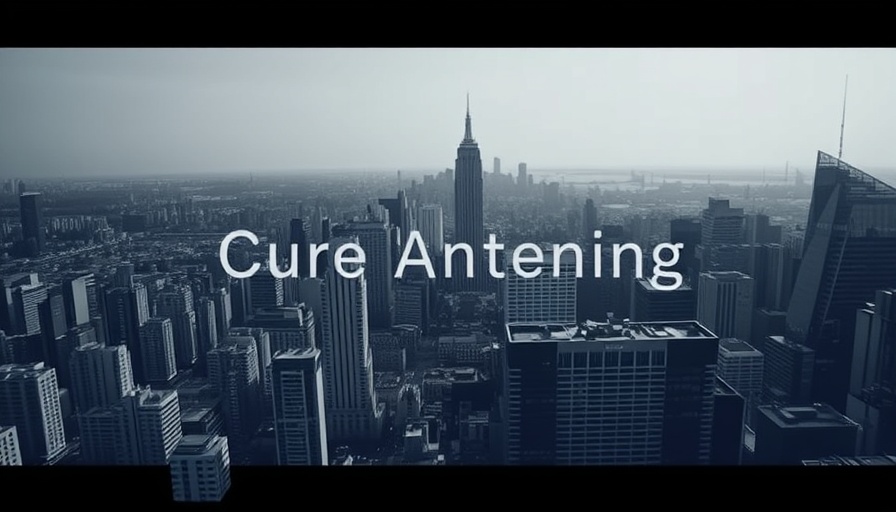
Texas Noncompete Bill: A Critical Shift for Dental Professionals
Texas Governor Greg Abbott's recent signing of a significant noncompete bill marks a pivotal moment for dentists and other healthcare providers in the state. Effective September 1, Senate Bill 1318 alters the landscape of noncompete agreements, impacting how dental leaders and practitioners will navigate their careers and practices in the coming years.
Understanding Senate Bill 1318
The core of Senate Bill 1318 lies in its amendments to the Texas Business and Commerce Code, specifically pertaining to noncompete agreements for healthcare professionals including dentists, physician assistants, and nurses. This legislative change is designed to foster a more flexible employment landscape for healthcare providers, encouraging more mobility within the industry.
Key Provisions: Shortened Duration and Scope
Noteworthy is the bill's limitation on the duration and geographical scope of noncompete agreements. Previously, these agreements could severely restrict a provider's ability to practice. Under the new law, the noncompete duration is capped at one year post-employment, with a geographical restriction of five miles from the provider’s primary practice site. This is a significant difference compared to prior standards that were often more extensive.
The Broader Impact: New Opportunities for Dentists
By extending these provisions to include dentists, the bill not only empowers dental professionals but also reflects a growing acknowledgment of their critical role in the healthcare landscape. With a reduced hold on their careers through noncompete clauses, dentists can better pursue opportunities without the fear of litigation or job insecurity; this change is particularly valuable in a profession where patient trust and continuity are essential.
Limitations on Noncompete Buyouts
The recent amendment also introduces limitations on noncompete buyouts, which previously allowed employers to buy out the agreements under certain conditions. With stricter controls in place, this ensures that the agreements do not impede professional mobility and health care competition within local markets.
Addressing Workforce Challenges: Responding to Current Needs
This legislative change comes as the healthcare industry grapples with significant staffing shortages and burnout among healthcare workers. According to recent surveys, 4.5 million healthcare workers are seeking improved working conditions and opportunities for career advancement. Bill 1318 responds directly to these needs, providing a framework that supports career development while alleviating some of the stressors that have plagued the healthcare sector.
The Future for Dentistry in Texas
As Texas implements this new legislation, dental professionals must remain vigilant about its implications. Understanding the nuances of how these noncompete clauses can affect their practices will be crucial for dental leaders aiming for sustainable growth. The ability to transition between practices without lengthy legal entanglements can ultimately lead to better patient care and improved professional satisfaction within the dental community.
Take Charge of Your Dental Future
As this law takes effect, dental leaders are encouraged to assess their employment agreements critically and engage with legal counsel to understand how these changes may affect existing noncompete agreements. Keeping informed about such legislative developments will be vital for making strategic decisions in the evolving landscape of dental practice in Texas.
 Add Row
Add Row  Add
Add 




Write A Comment